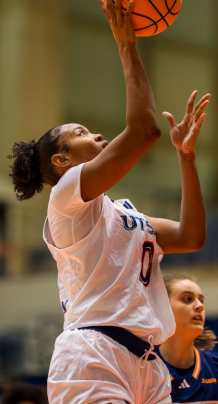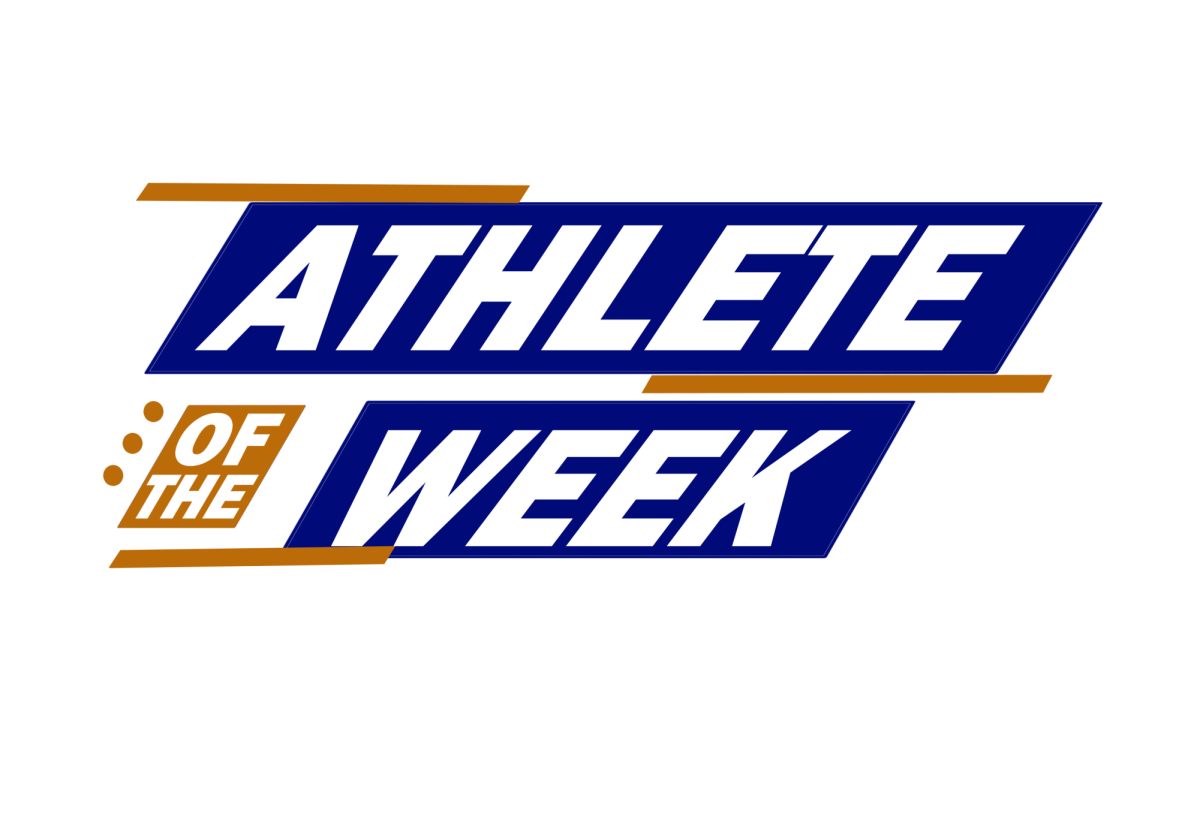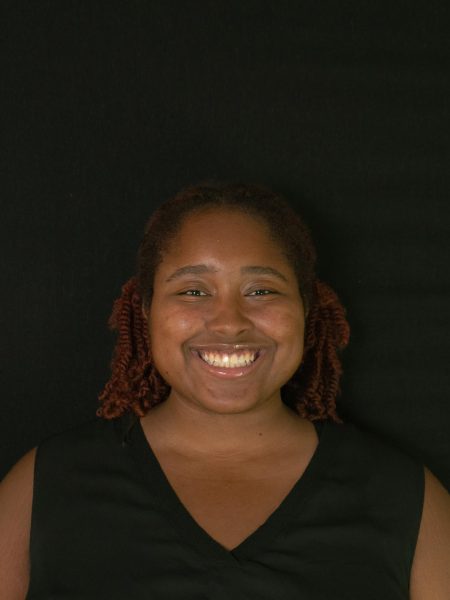Elyssa Coleman, the star redshirt junior and leading scorer on the women’s basketball team, took a surprising approach to the beginning of her career.
Despite learning to play the sport at a young age, the 22-year-old forward was not initially interested in playing basketball, and instead found her way to the sport through encouragement from her family, specifically her aunt.
“I started playing when I was seven,” Coleman said. “I didn’t want to play at first just because I wasn’t even really big into sports when I was little. But my aunt literally bribed me to play little league and then I played a little bit here and there, and then I started taking it seriously in middle school.”
Coleman’s basketball career took her to new heights, especially when she was in high school where she attended Atascocita High School in Houston.
In her senior season, she surpassed the 1,000-point milestone, was named the District 22-6A Most Valuable Player and was ranked the No. 12 forward in the class of 2020 across the nation. Her remarkable high school career led to Coleman receiving an opportunity to play for the women’s basketball team at The University of Texas.
Injury struggles caused a setback for the 6-foot-3 forward, leading Coleman into the transfer portal which landed her at UTSA.
“When I first signed to [Texas] our head coach, Karen Aston, was the head coach there,” Coleman said. “Then over the summer they switched coaches, they switched the whole staff. So, once I wanted to transfer, I automatically knew where I wanted to go. I just wanted to follow her, especially because she was rebuilding the program here. So that was my main reason.”
Outside of basketball, Coleman is currently working to obtain a master’s degree in Public Administration and states that her dream job involves some type of work in diversity and inclusion.
Being a student-athlete while working towards a degree requires a certain level of organization and dedication, but Coleman has learned to embrace the challenge. When it comes to overcoming any difficulties of balancing school and basketball, Coleman explains that a proactive approach is what helps her through those obstacles.
“It’s mainly about just staying organized and staying ahead of stuff,” Coleman said. “When I first get my classes, I go ahead and organize my whole calendar and what days I’ll do what, and then just try to stay proactive. I’ll try to stay at least a week ahead of all my work.”
Being in her graduate career, Coleman emphasizes that her typical schedule involves a lot of reading in between basketball practices.
“I try to do at least some reading before practice,” Coleman said. “Then go to rehab, go to practice, go eat and then I’ll come back to reading and taking more notes, then I have night classes.”








